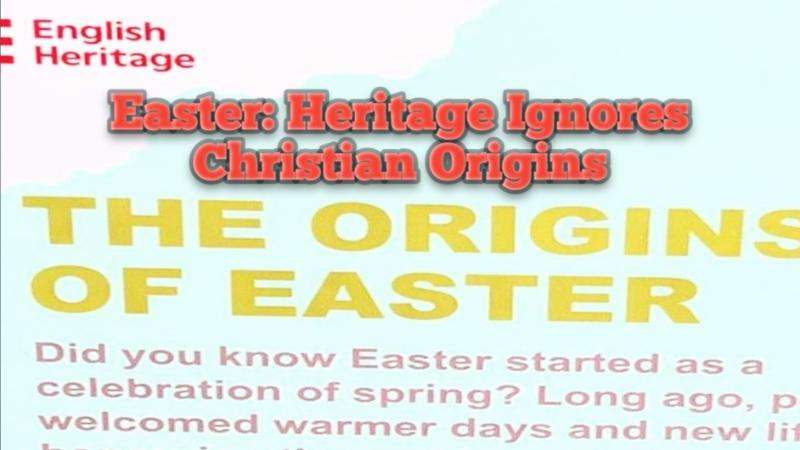English Heritage is facing a wave of criticism after its Easter children's activity booklet, distributed at various historical sites, emphasized the pagan origins of the holiday while omitting its Christian significance. The booklet, part of an "Easter Adventure Quest," presented Easter as primarily a celebration of spring, linking the name to the goddess Eostre and detailing pagan traditions like bonfires and floral decorations. This portrayal has ignited controversy, particularly among Christian visitors who feel the fundamental Christian narrative has been deliberately sidelined.
The crux of the issue lies in the booklet's focus on the Eostre theory, derived from the Venerable Bede's 8th-century writings, which claims "Easter" originates from the goddess. However, this theory is not universally accepted, and the etymological roots of "Pascha" and "Pâques" in other languages, stemming from the Hebrew "Pesach" (Passover), suggest a different origin. Critics argue that English Heritage's emphasis on pagan roots, while ignoring the core Christian celebration of Jesus Christ's resurrection and its connection to Passover, constitutes a form of historical "whitewashing."
A significant point of contention is the absence of Christian context in the booklet's materials, which instead highlight bunnies and eggs. Phil, a Catholic primary school governor, voiced his dismay on social media, expressing the need to explain the Christian aspect of Easter to his son, a narrative entirely absent from the English Heritage materials. In response, English Heritage defends its approach, stating the trail aims to present a range of seasonal, cultural, and religious facts, including Christianity. However, this defense has not quelled the criticism regarding the level of information given, and the focus of the information provided.
This controversy highlights the ongoing debate surrounding the secularization of traditional religious holidays and raises questions about how historical organizations should navigate complex and contested historical narratives. The incident underscores the delicate balance between presenting diverse perspectives and respecting the deeply held beliefs of visitors. While acknowledging the pagan influences on Easter traditions may be valid, the near-total omission of the central Christian narrative has clearly caused significant offense, revealing the challenges of representing history in a way that respects all viewpoints.








.svg)


